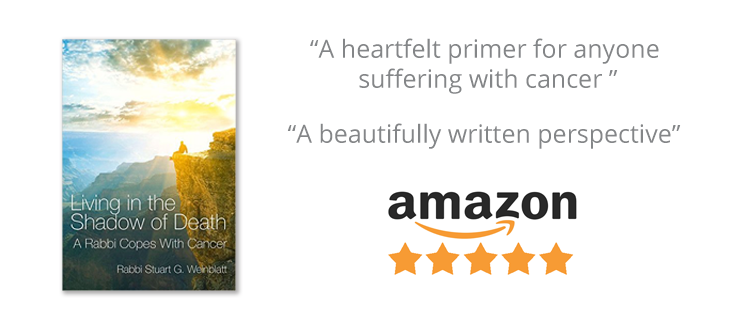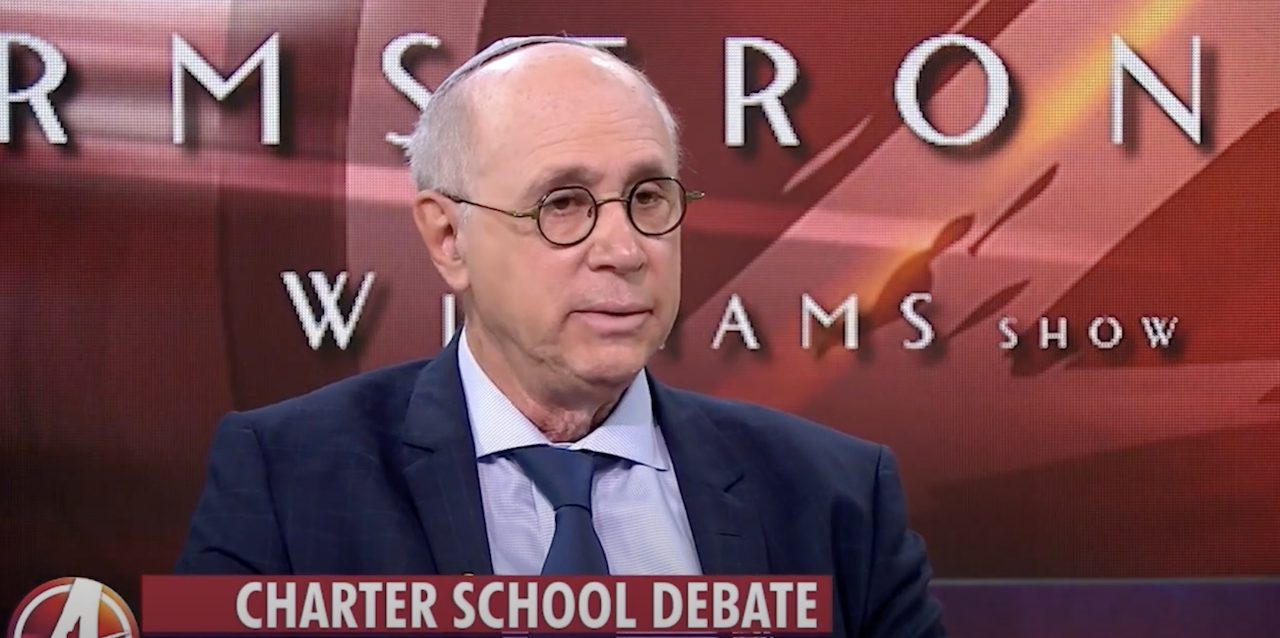All those who have gone through this kind of an ordeal or who may someday do so — or in other words, all those who are mortal — will find this book to be a valuable treasure: to read now and then to save and read again if it is ever needed, for we all need text books in how to live well and in how to reckon with our mortality — and this book is one such guide.
Public figures are not allowed a private life. And so, when an oncologist has cancer, or when a politician has pneumonia, or when a rabbi becomes seriously ill, his battle has to be shared with his or her community. And sometimes, a certain suspicion takes place. How can he be a cancer doctor when he cannot protect himself from this diease? How can she be a leader when she herself has taken ill? How can he teach us how to live the way God wants us to when he himself has become seriously sick?
Rabbi Stuart G. Weinblatt understood this truth when he found out that he had cancer just when he was about to leave on a synagogue tour to Israel. Instead of trying to hide his illness, he wrote an e mail to the entire congregation, telling them what he was going through and promising to keep them informed. He went through his first chemotherapy and then left for Israel to catch up with the synagogue tour. And when he came back, he began preparing for a High Holy Days that he knew would be different, both for him and for his people, than any that they had ever experienced before.
The service was pretty much the same as usual, except for the fact that this year he could not shake hands or hug everyone as he went around behind the Torah for fear of catching anything while his immune system was weak, and except for the fact that when he announced the Prayer for the Sick and invited all those who had someone whom they cared about who was ill to rise for the prayer, the entire congregation rose in support for him.
The service may have been pretty much the same, but the sermon that day was different, because Rabbi Weinblatt spoke about what he was learning from the illness that he was struggling with. What he said that day was not very different from what he had said many times before, and from what every other rabbi has said on the High Holy Days, but this time his sermon had a note of urgency to it that made the obvious truths that he uttered feel powerfully true.
He said that we should live in the moment and that we should appreciate each and every moment in our lives. What rabbi has not said this truth so often that it has become a cliché by now? And yet when he said it that day it took on great meaning because it came from someone who had learned this truth from his own experience. We all say that we are mortal, and we all say that time is precious, but it is one thing to say these words in theory and it is something very different to say them or hear them when life has taught us how true they are. One day, as Rabbi Weinblatt reminded his people that day, he was fine and busy and preoccupied as we all are, and the next day the appointments in his calendar book no longer mattered and he was in the hospital awaiting surgery.
And therefore, he told his people that day, never, never, never take your life for granted. If there is some goal that you want to achieve, if there is some place that you want to see—do it now, for no one owns tomorrow.
And then he told his people a second lesson that he had learned—a lesson that is the opposite of the first—but that is equally true. He told them that it is not enough to live in and for the moment. One must also have a purpose in life, one that transcends merely enjoying oneself, one that connects you to your people and to your people’s values, and to your God. He told them that if they hold on to either truth without cherishing the other, that their lives would be unbalanced and commonplace.
And he told them one more truth that every rabbi has said in many sermons but that he said that day with new understanding. He told his people that day what he had learned from all the messages and gifts and prayers that he had received from them before and after his surgery. He told them that the knowledge that so many people were rooting for him had made him aware of how blessed he was and that these messages gave him strength and courage at a time when he needed strength and courage so much.
I am sure that there was no one at services at that synagogue that day who had not heard these truths before, but I am also sure that there was no one there that day who was not deeply moved by hearing them from the lips of someone who had gone to the very edge of death and who had come back from there with gratitude in his heart and with wisdom that he had acquired from his ordeal.
There is more in this book: the prayers that spoke most powerfully to his heart when the surgery was about to begin, the tributes to his family, his medical team and to his congregants that he says meant so much to him, and the lessons that he says that he hopes that he will remember and live by, even when his medical crisis is over and his remission is official.
Reviewed by Rabbi Jack Riemer, editor of Jewish Reflections on Death and the co-editor of So That Your Values Live On
Also published on Medium.





